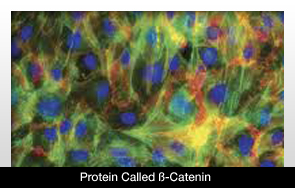 |
The International and American Associations for Dental Research recently made a discovery that could be pivotal for tooth root formation.
The protein called ß-catenin is expressed in odontoblasts and is required for root formation. The Chonbuk National Korea School of Dentistry wrote the research paper and it appeared in the Journal of Dental Research.
The tooth root and the surrounding periodontium maintain the tooth in the jaw. The root develops after the process of morphogenesis. Prior to this study, little was known about the molecular mechanisms that control tooth root formation.
Tissue-specific inactivation of ß-catenin in developing odontoblasts results in molars that lack roots and thin incisors.
Root odontoblast was disrupted in the mutant molars, which preceeded the loss of a subset of Hertwig’s epithelial root sheath. The outer layer of Hertwig’s epithelial root sheath extended without the root, making way for the molars to eventually erupt.
These results show that there is a cell-autonomous requirement for Wnt/ß-catenin, which alerts the dental mesenchyme to start root formation.
Dentist can learn a great deal of information from the tooth phenotypes, how Wnt impacts odontoblasts and the way the root develops.



